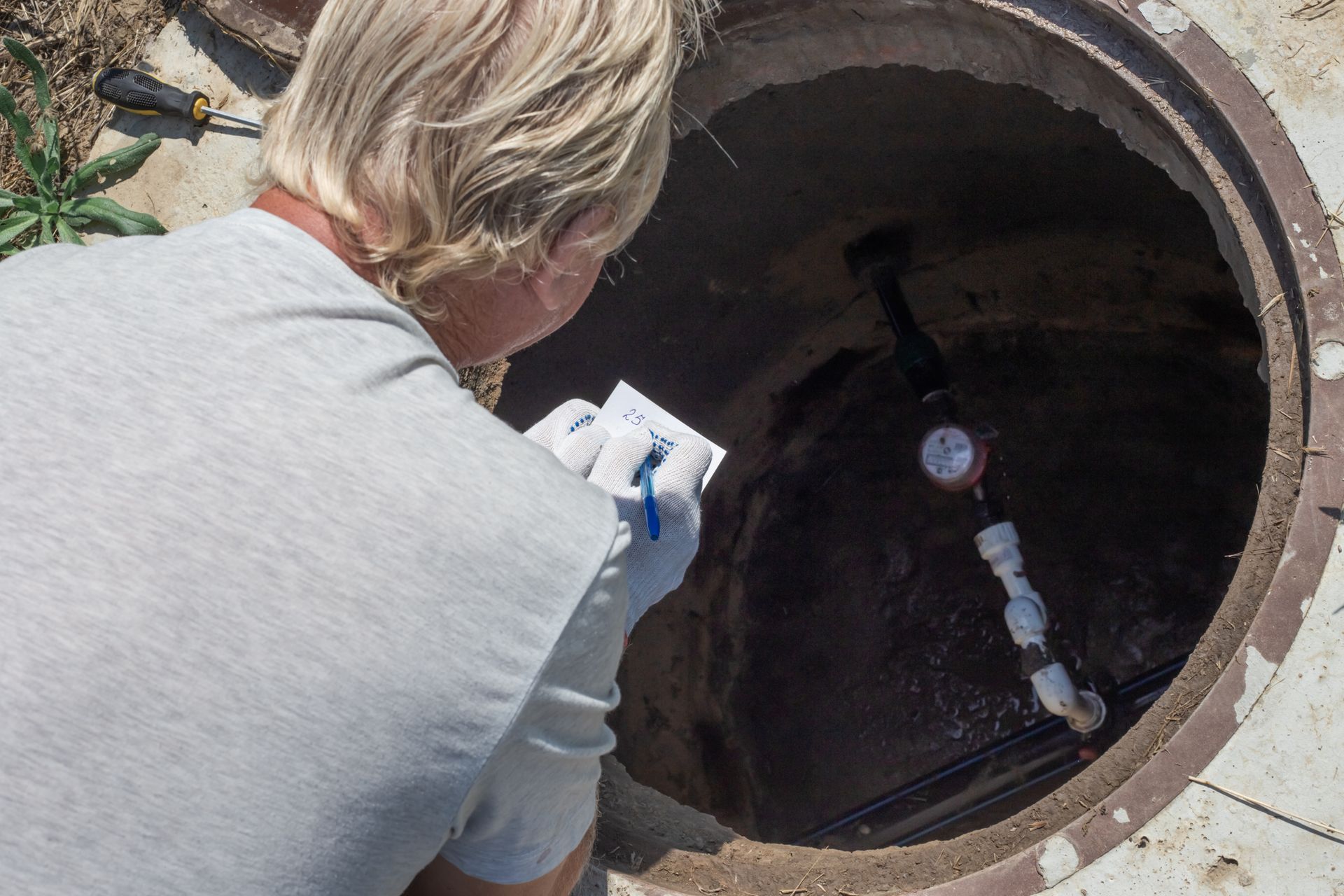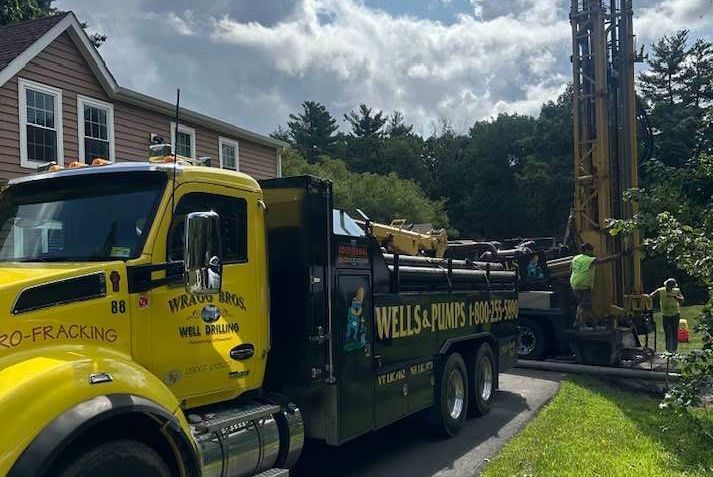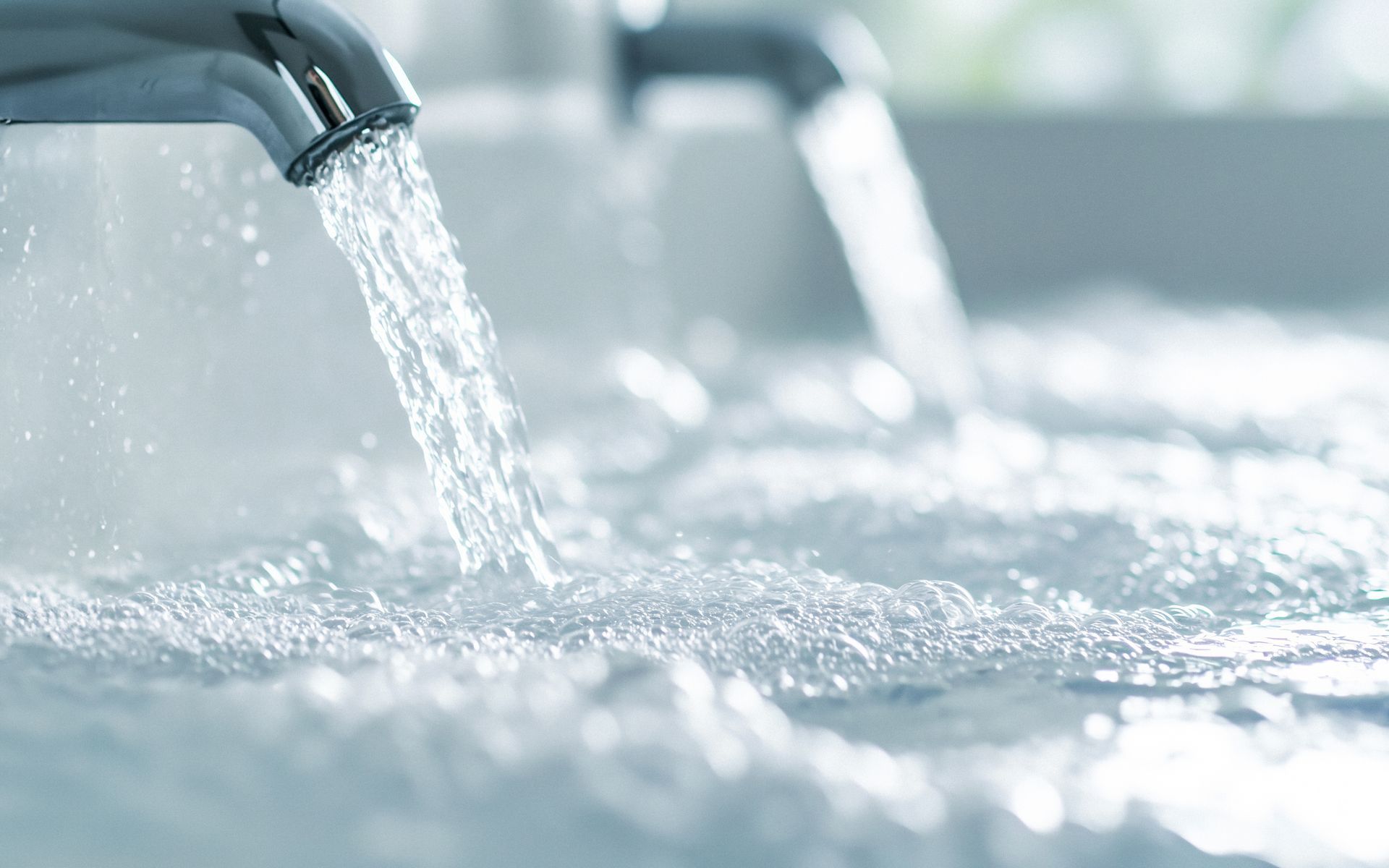Water treatment, water testing, well drilling and hydro-fracking services for VT, NH, and MA.
Do you need emergency well water service?
Well Inspector: What You Need to Know When Buying
Buying a property with a private well? A well inspector ensures that the well is safe and functional. This article explains what a well inspector does, when to schedule inspections, and how to choose the right professional.
Key Takeaways
- Regular well inspections are essential for maintaining water quality and safety, ideally scheduled at least annually.
- Qualified well inspectors assess various components, including equipment, water quality, and flow rate, to identify potential issues and ensure compliance with regulations.
- Investing in professional well services and routine inspections can prevent costly repairs and maintain the reliability of the water supply.

Top Tips from a Professional Well Inspector
Professional well inspectors provide essential insights for maintaining well safety and efficiency. Start by seeking recommendations from local health departments and professional organizations to find qualified inspectors. Referrals from friends or local online communities can also point you towards trusted professionals.
Routine visual checks of the wellhead and surrounding area help maintain the well’s physical integrity and prevent contamination. Address any defects found during the inspection promptly to ensure water quality and safety. These proactive steps can save you from costly repairs and ensure a reliable water supply.
Introduction
A well inspection thoroughly evaluates the well system, including the well cap, pump, and other critical components. This process ensures water quality and safety. Inspectors also check for compliance with state and local regulations, impacting the well’s overall health.
Inspectors analyze both visible and hidden aspects of the well, from the wellhead to the pressure tank, ensuring performance and safety. Regular inspections identify potential issues early, keeping the well in good condition and providing safe drinking water.
Maintaining a private well demands ongoing attention and care. Regular inspections and timely maintenance prevent issues that could compromise water quality and system functionality. Understanding the inspection process helps well owners ensure their water supply remains safe and reliable.
Understanding the Role of a Well Inspector
Well inspectors ensure the safety and functionality of private wells through thorough evaluations of the well and its components, checking for wear and tear, contamination, or mechanical issues. Regular inspections maintain the well’s integrity and prevent potential problems.
The inspection process covers various aspects such as equipment surveys, water testing, and flow rate evaluation. Each component is critical to ensuring efficient operation and safe drinking water.
Exploring these elements in more detail reveals how they contribute to a comprehensive well inspection.
Equipment Survey
An equipment survey is a fundamental part of any well inspection, involving a detailed examination of all operational equipment. Inspectors look for signs of leaks, rust, cloudy water, and mechanical defects. Regular checks of well covers ensure they are secure and intact.
Equipment surveys help identify potential problems early, allowing for timely repairs and maintenance. This proactive approach keeps the well in working order, providing safe and reliable water.
Water Testing and Analysis
Water testing, which involves collecting water samples, is crucial for ensuring the water is safe for consumption. Inspectors test for bacteria, nitrates, and other harmful substances. Coliform bacteria, for example, is a common focus due to its potential health hazards.
Regular water testing detects contaminants such as E. coli, radon, and nitrates, ensuring the water remains clean and safe. The final report includes detailed lab analysis findings and necessary steps to ensure water safety. By maintaining regular water tests, well owners can address contamination issues promptly and maintain high water quality.
Labs also test for natural minerals and their levels in well water. This comprehensive analysis identifies imbalances or potential issues, offering valuable information for maintaining the well’s health and functionality.
Flow Rate Evaluation
Flow rate evaluation determines whether the well can meet household water demand and maintain the required pressure. Flow testing assesses the well’s ability to supply water at the necessary pressure for everyday use.
If a well cannot meet water demand, it may be necessary to upgrade the well pump installation or drill a new well. By regularly evaluating the flow rate, well owners can ensure their water system operates efficiently and meets their water needs.

When Should You Schedule a Well Inspection?
Regular well inspections are crucial for maintaining your well’s health. Schedule inspections at least annually to identify mechanical issues and ensure water cleanliness. Comprehensive inspections are also recommended when buying or selling a property with a private well.
While state laws may not mandate well inspections during property transfers, they are highly recommended to uncover hidden issues and avoid unexpected repair costs. A well inspection before purchasing a property provides valuable information about the well’s structure and drinking water quality.
Choosing a Qualified Well Inspector
A qualified well inspector ensures a thorough and accurate inspection. Licensed professionals ensure compliance with state regulations. Experienced inspectors are familiar with various issues and provide reliable assessments.
Contact your local health department, neighbors, real estate agents, or the EPA to find a qualified inspector. Professional inspectors certified by recognized organizations have met rigorous knowledge requirements and offer a higher level of expertise.
A knowledgeable and experienced inspector helps maintain the well’s safety and compliance with regulations.
Cost of Well Inspections
Well inspection cost typically ranges from $300 to $500, depending on various factors. Travel and lab fees can increase the overall cost, so plan for these expenses when scheduling an inspection.
Despite the costs, well inspections are a worthwhile investment for ensuring the well’s safety and condition. Rush processing for water testing can double the fees compared to standard processing. Understanding these costs helps homeowners budget appropriately and maintain their well’s health.
Common Issues Detected During Well Inspections
Well inspections often uncover issues affecting municipal water quality and septic system performance. Changes in water quality, such as taste or odor, should prompt an immediate inspection. Surface water intrusion can introduce fecal coliform bacteria, posing health risks.
Mechanical components like pressure tanks and motor controls often show signs of failure during inspections. Regular testing and proactive maintenance can effectively identify and resolve these common issues.

Importance of Regular Well Maintenance
Regular well maintenance ensures water supply safety and reliability. Well owners are responsible for their water’s upkeep and safety. Regular inspections help detect problems early, preventing costly repairs.
Testing for substances like coliform bacteria and nitrates ensures water safety. Consult a professional immediately if the well shows signs of contamination or adverse changes in water quality. Regular maintenance and inspections keep the well in good condition, providing safe drinking water.
Septic System Considerations
A septic system is a crucial component of a private well system, responsible for treating and disposing of wastewater. Regular inspections of the septic system are essential to ensure it is functioning properly and not contaminating the well water.
A thorough septic system inspection should include an evaluation of the tank, drainfield, and other components to identify potential issues. The inspector will check for signs of failure, such as slow draining, backups, or odors, which can indicate a problem with the septic system.
Additionally, a septic system inspection can help identify potential hazards, such as the presence of hazardous chemicals or coliform bacteria, which can contaminate the well water. Regular inspections and maintenance of the septic system are vital for protecting the well system and ensuring the safety of your water supply.
Steps to Take After a Well Inspection
After a well inspection, take the necessary steps to maintain the well’s health. Safely store a written report detailing the inspection results and recommendations as part of maintenance records. Keeping a log of well construction details and maintenance records aids in troubleshooting future issues.
Develop a relationship with a well contractor for ongoing advice and service. Request sample inspection reports to gain insight into an inspector’s thoroughness and communication style, helping homeowners make informed maintenance decisions.
Benefits of Professional Well Services
Professional well services offer numerous benefits for well owners. Professional well drillers ensure correct installation depth and alignment, reducing future complications. They are equipped with advanced tools to handle various well installation challenges effectively.
Expert installation by professionals minimizes potential safety hazards, including injuries from equipment. Using professional services often leads to long-term cost savings by avoiding mistakes commonly made in DIY attempts.
Professional services provide convenience, allowing homeowners to focus on daily responsibilities without the added stress of complex installation tasks.
Summary
In summary, well inspections are vital for ensuring the safety and functionality of your private well. From initial equipment surveys to water testing and flow rate evaluations, each step plays a crucial role in maintaining the well’s health. Regular inspections help detect potential issues early, preventing costly repairs and ensuring a reliable water supply.
By choosing qualified inspectors, understanding the costs involved, and taking proactive steps post-inspection, well owners can maintain their wells in good condition. Investing in professional well services offers peace of mind and ensures the well operates efficiently. Regular maintenance and inspections are key to enjoying the benefits of a private well while ensuring safe and clean water for your household.
Frequently Asked Questions
What is the typical cost of a well inspection?
The typical cost of a well inspection ranges from $300 to $500, influenced by factors like travel and lab fees. It is advisable to obtain quotes from multiple inspectors to ensure an accurate estimate.
How often should I schedule a well inspection?
It is advisable to schedule a well inspection at least annually to maintain water quality and detect any potential mechanical issues. Regular inspections help ensure the safety and reliability of your water supply.
What are common issues detected during well inspections?
Common issues detected during well inspections include changes in water quality, surface water intrusion, and mechanical failures like pressure tanks and motor controls. Addressing these issues promptly is crucial for maintaining well integrity and water safety.
Why is water testing important during a well inspection?
Water testing during a well inspection is essential for identifying harmful contaminants like coliform bacteria and nitrates, thereby ensuring the safety of drinking water. This proactive measure protects the health of individuals relying on well water.
What steps should I take after a well inspection?
After a well inspection, it is essential to maintain a log of well construction details and maintenance records, ensure the written report is stored safely, and establish a relationship with a well contractor for ongoing support. This proactive approach will help ensure the long-term health and efficiency of your well.
All Rights Reserved | Wragg Brothers Well Drilling


